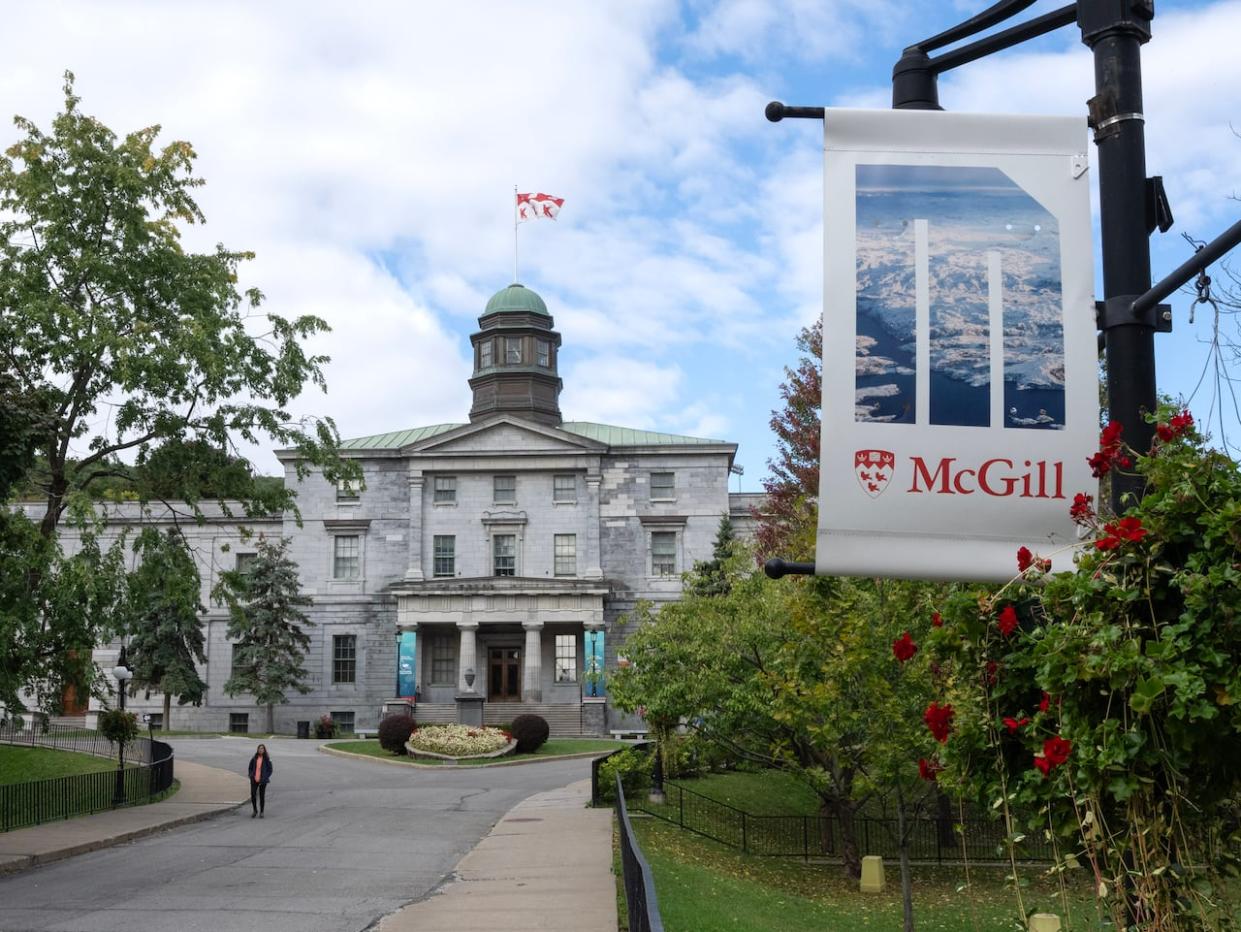McGill to offer bursaries to offset tuition fee hike for Canadian students

McGill University says it will be offering new out-of-province Canadian undergraduate students a bursary to offset increased tuition fees.
The $3,000 Canada Award will be available to students from the faculties of arts, education, nursing, music, the school of architecture and most science programs to bring tuition closer to the current rate of $9,000 for up to four years, according to a Tuesday news release from the university.
The move comes in response to the Quebec government announcing it will hike tuition fees for out-of-province students to $12,000, starting in the fall of 2024 — a decision that will damage McGill and Quebec's reputation, university administrators have said. McGill says it has seen a 20 per cent drop in applications since the change was announced.
"Roughly 1,200 students would be eligible for this award, but again we don't know because we're facing an uphill battle where the messaging from the government has potentially turned away some students," Fabrice Labeau, deputy provost, said in an interview.
"So what we're trying to do with this award is actually do the opposite and bring students back, make them consider McGill as their place of choice, because we're ready to host them, and we're trying to help them overcome new barriers that have been put in place by the government."
Initially, the government had announced that tuition fees for out-of-province Canadian students would be even higher — closer to $17,000 — but last week, it softened the blow by setting fees at $12,000 starting next fall.
The province's English universities — McGill, Concordia and Bishop's — proposed making French-as-a-second-language courses mandatory to better equip their graduates to live and work in Quebec in an effort to stop the fee increase.
In the end, the government raised tuition fees by a smaller amount and implemented a language requirement for Canadian and international students as of fall 2025.
Canadian students from outside Quebec and international students will have to demonstrate Level 5 proficiency in oral French — the start of an intermediate level, according to the province's language scale.
"Offering this award will require the university to make financial sacrifices, but students from the rest of Canada are part of our DNA," Deep Saini, president and vice-chancellor of McGill, said in a statement. "We believe that the diversity of McGill's student population makes for a richer learning experience that benefits all our students."
The school says the bursary money will not come out of its $1.9-billion endowment fund but will be from another fund that is dedicated to student financial aid.
Details of the award are to be available on the McGill undergraduate admissions website by Dec. 22.
In a statement to CBC News, a spokesperson for Quebec Higher Education Minister Pascale Déry said McGill is "free to award bursaries to its students from its own funds," and the minister hopes she can count on the university's co-operation to implement the government measures.


